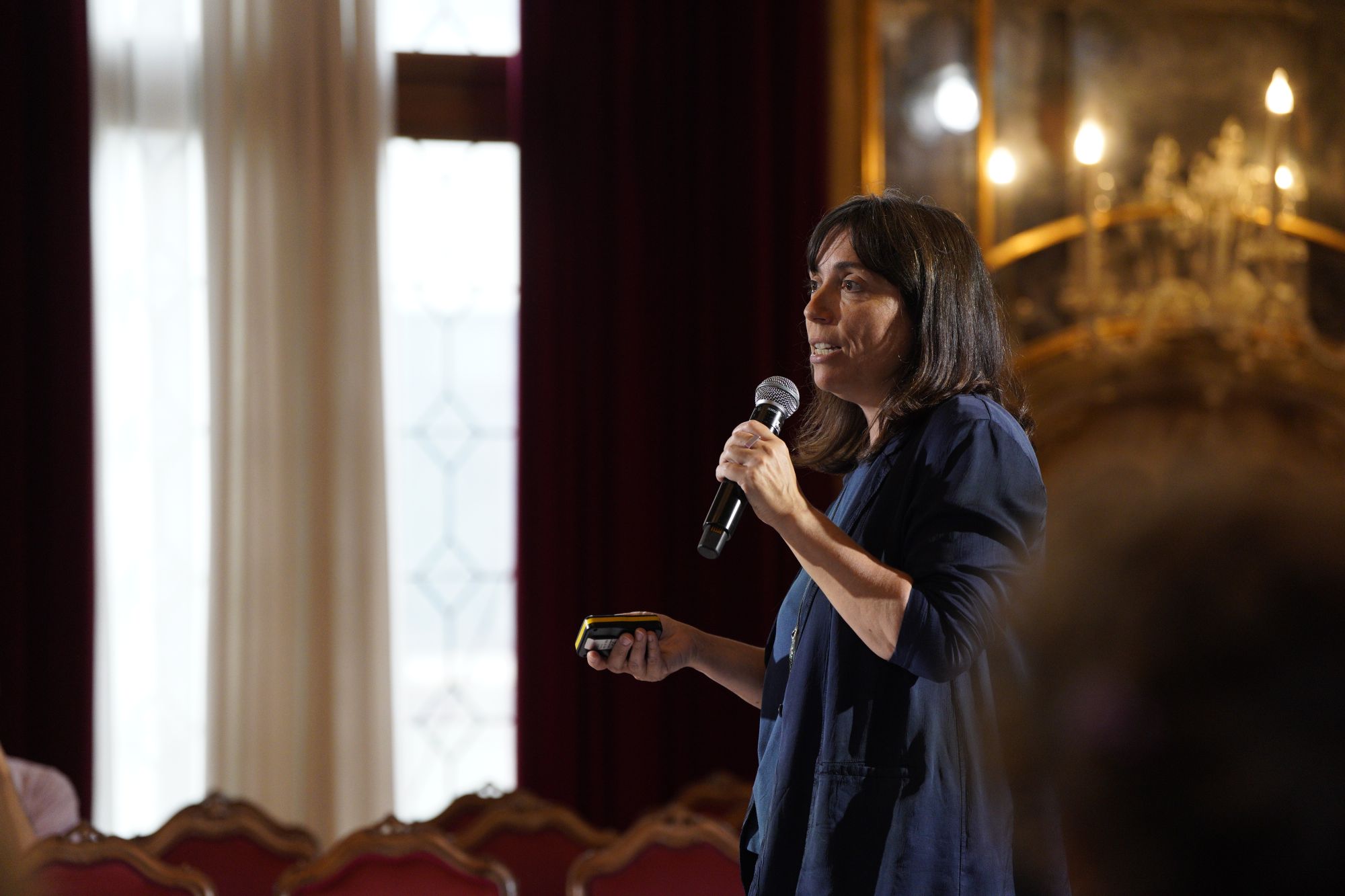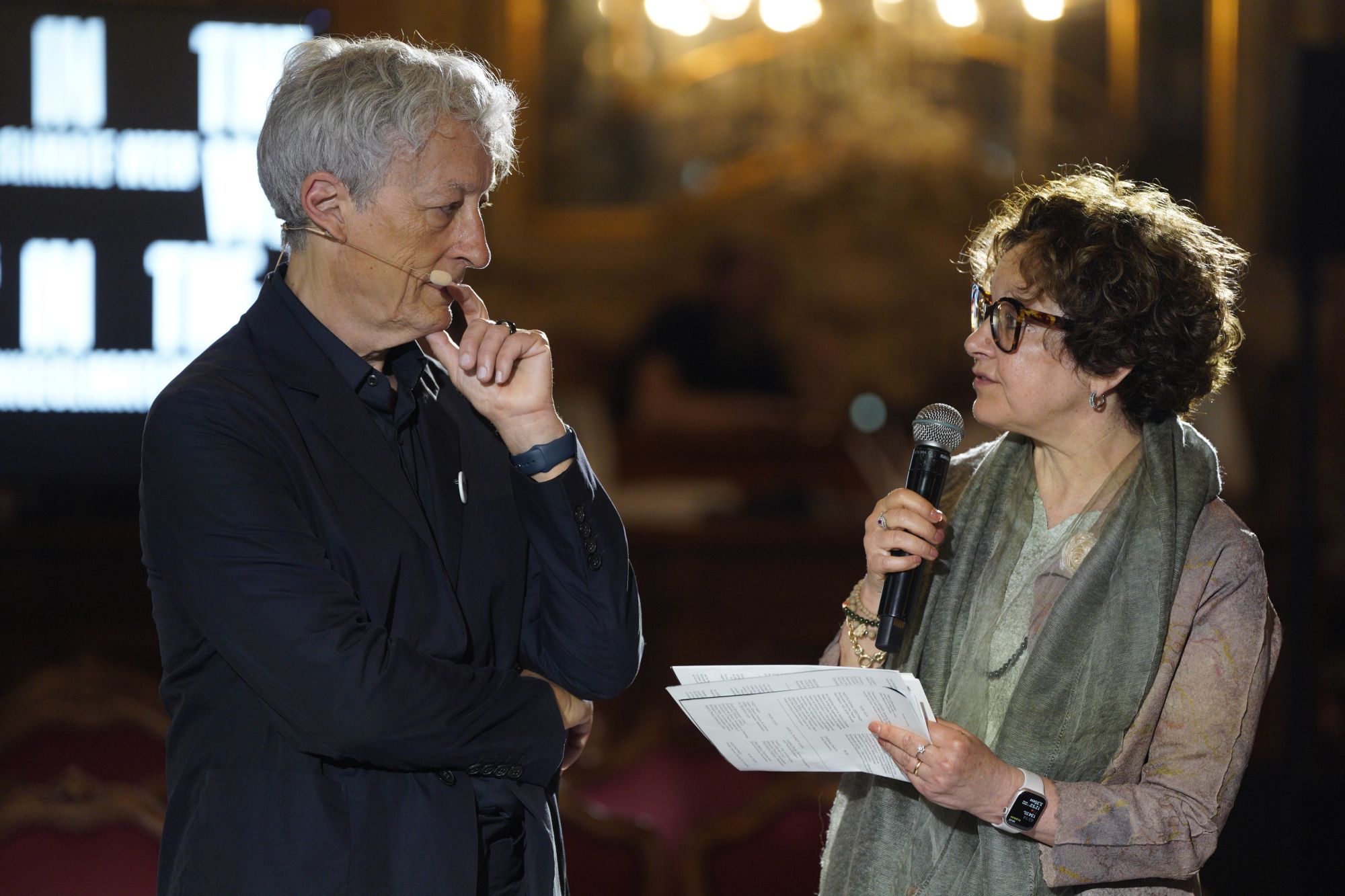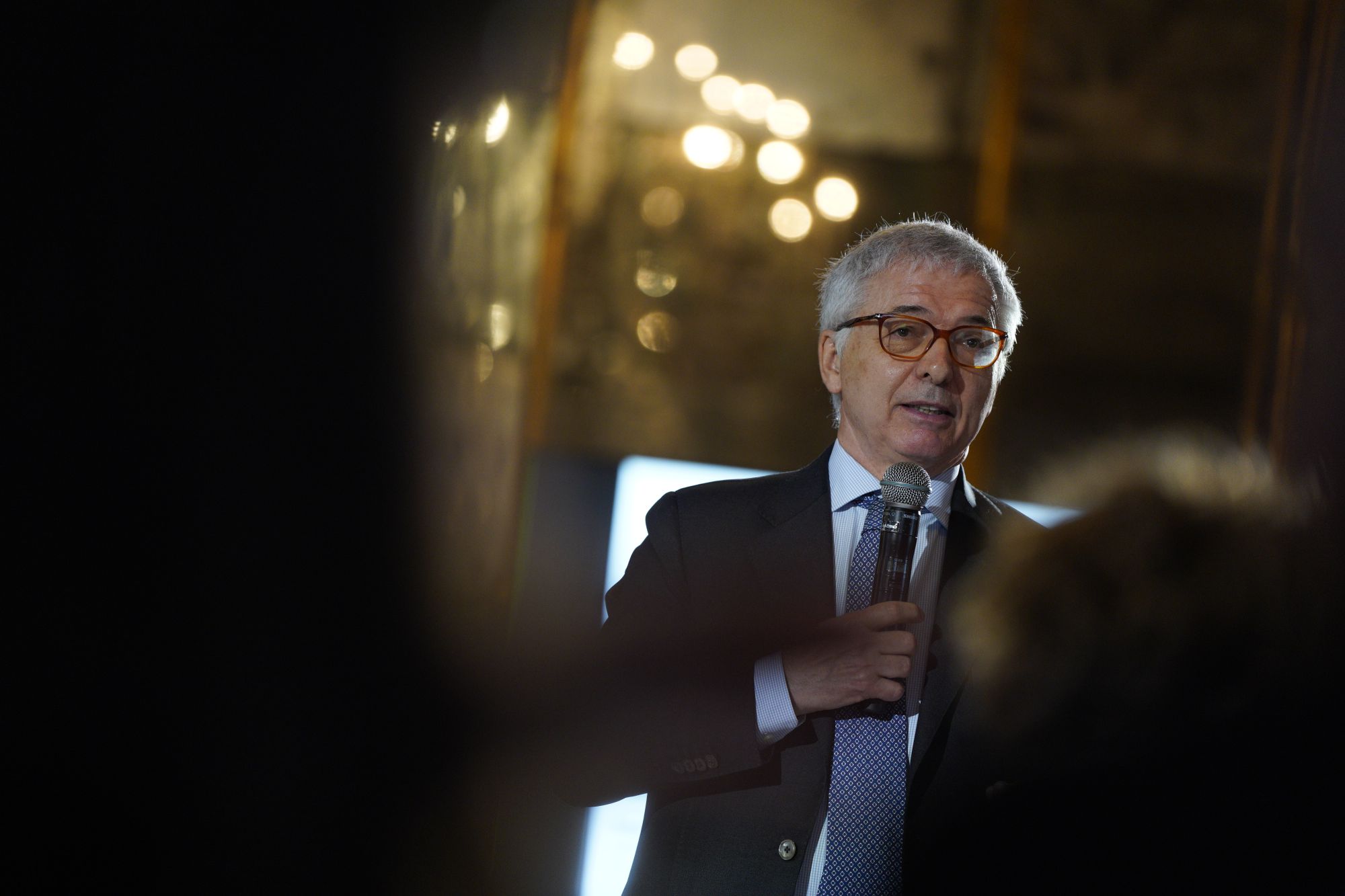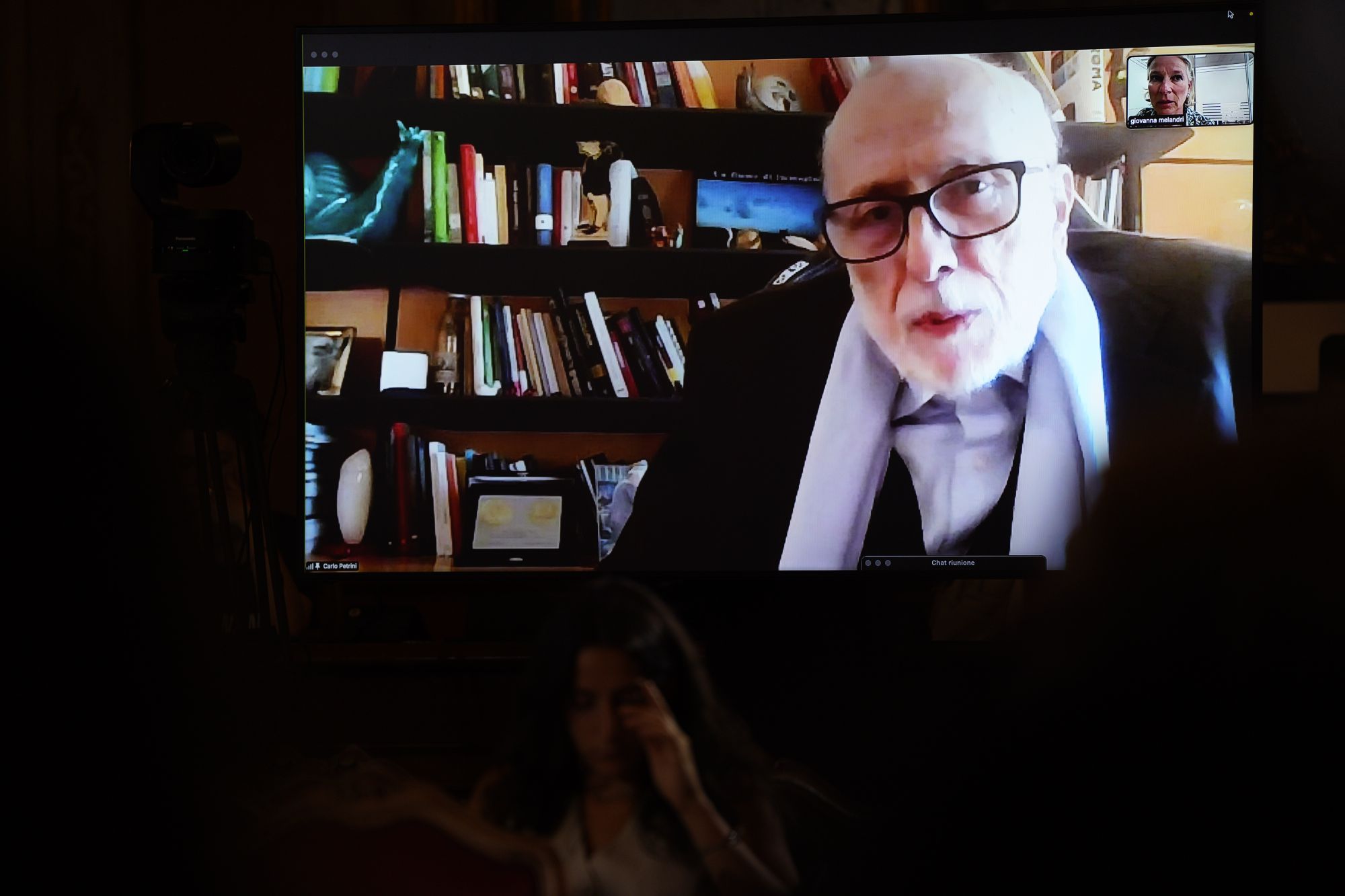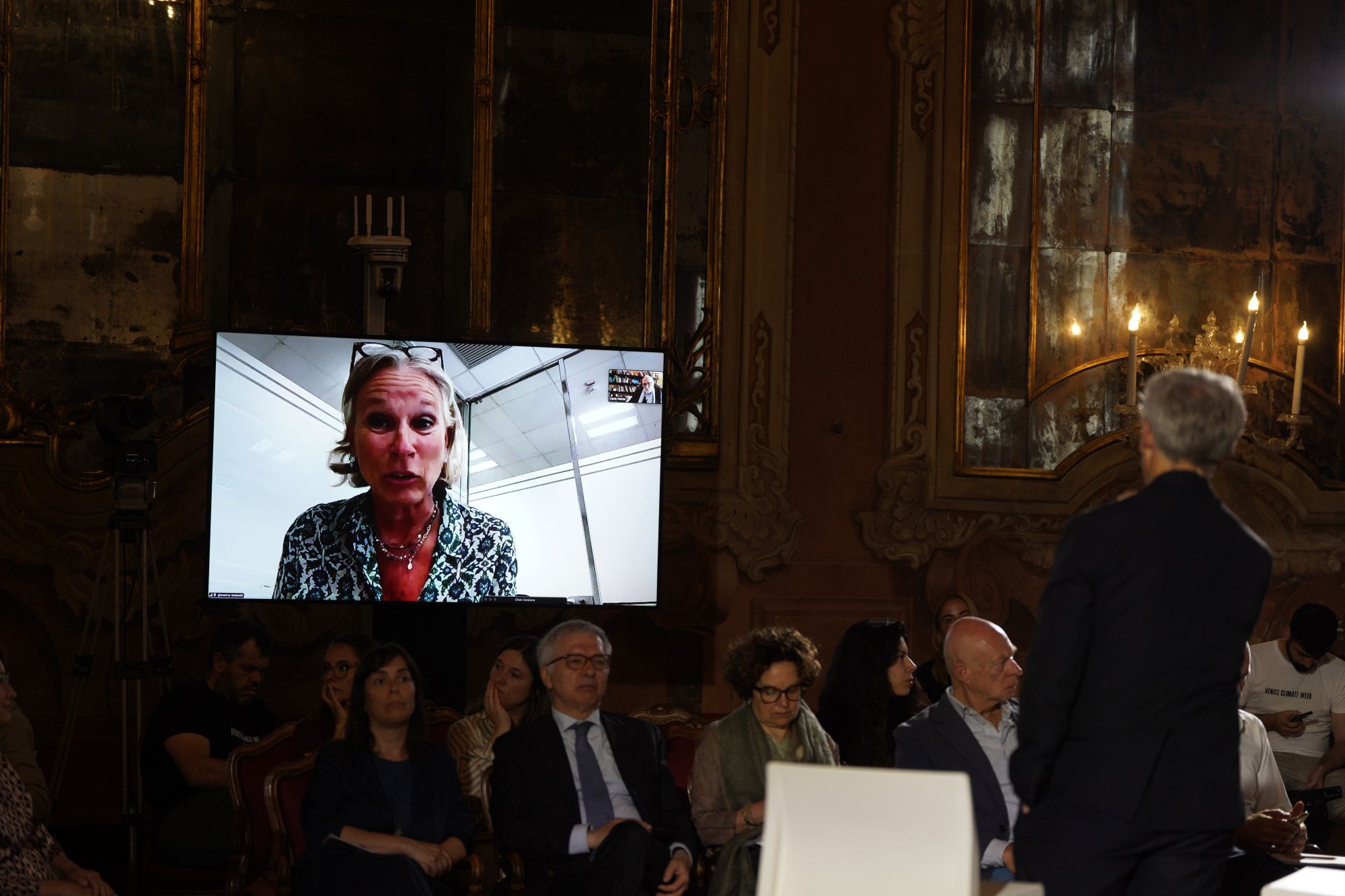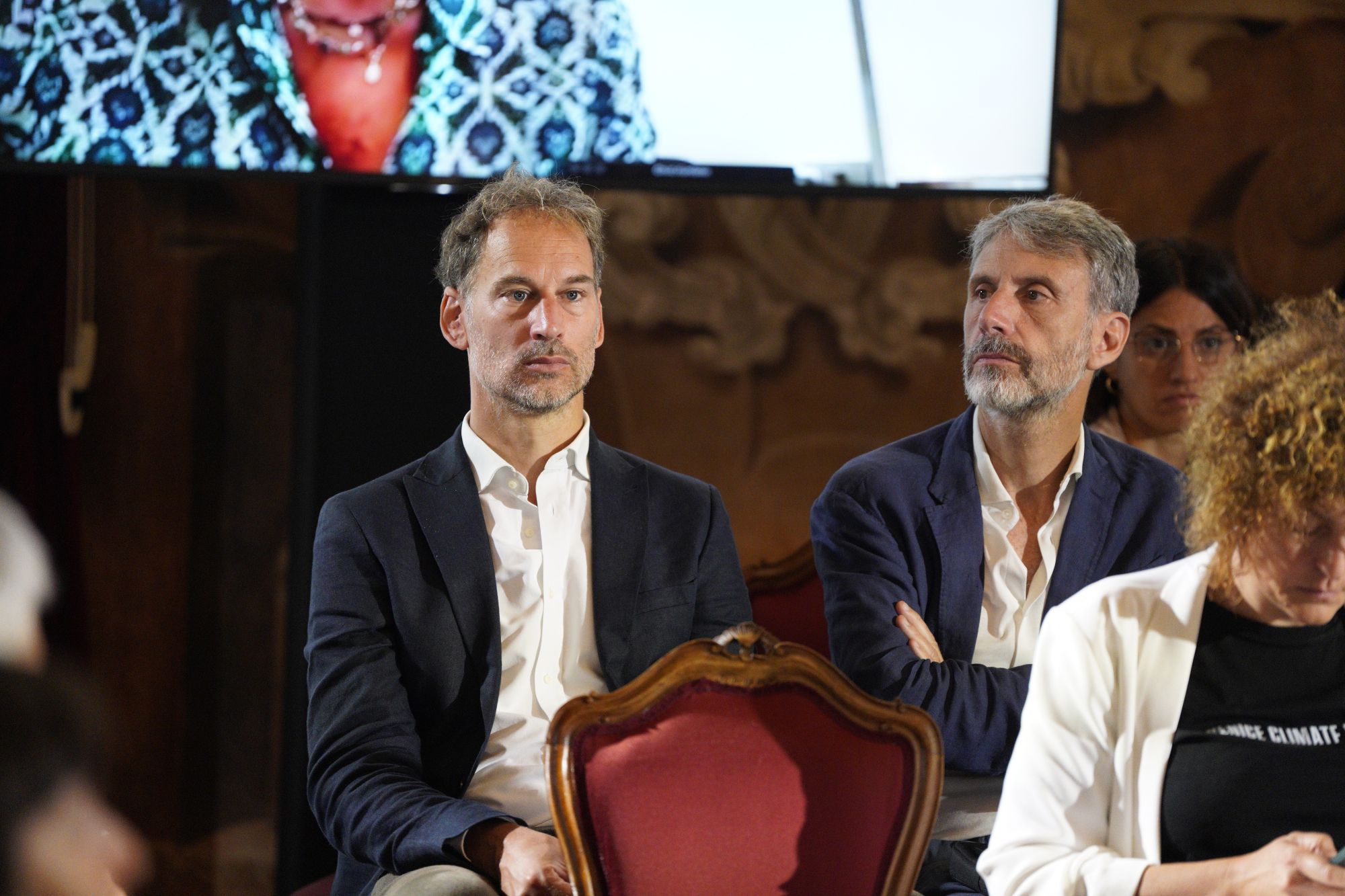Ca' Foscari Venice: Life Economy
The third day of Venice Climate Week took place today at the Silvio Trentin Lecture Hall of Ca' Foscari, with a crucial focus on the "Life Economy" and the scientific, political, and ethical implications of global climate change.
Anna Pirani, a scientist from the CMCC and author of IPCC reports, opened the session by reflecting on the increasingly tangible prospect of exceeding the 1.5°C global warming limit. She presented a conceptual review analyzing overshoot scenarios, assessing damages, vulnerabilities, and the possibility of returning below the threshold, stressing that urgent action on emissions is essential but not enough: “Effective and equitable adaptation will remain crucial to limit damages along the way,” she concluded.
Daniele Franco, Scientific Director of the CINI Foundation and former Minister of Economy, warned about delays in public decision-making processes, which are often short-sighted and hinder energy transitions: “We entered the Anthropocene without realizing it, an era where human beings directly impact the climate.” The change of infrastructures—from transportation to heating—will take decades.
Anna Pirani, a scientist from the CMCC and author of IPCC reports, opened the session by reflecting on the increasingly tangible prospect of exceeding the 1.5°C global warming limit. She presented a conceptual review analyzing overshoot scenarios, assessing damages, vulnerabilities, and the possibility of returning below the threshold, stressing that urgent action on emissions is essential but not enough: “Effective and equitable adaptation will remain crucial to limit damages along the way,” she concluded.
Daniele Franco, Scientific Director of the CINI Foundation and former Minister of Economy, warned about delays in public decision-making processes, which are often short-sighted and hinder energy transitions: “We entered the Anthropocene without realizing it, an era where human beings directly impact the climate.” The change of infrastructures—from transportation to heating—will take decades.
Giovanna Melandri, President of the Human Foundation, emphasized the essential role of the economic and financial system: “Science has yet to penetrate politics. Without a decisive realignment of the financial market and business strategies, the transition will remain incomplete. Europe must defend its regulatory ambition.” She also pointed out a perceptual gap that separates us from nature: “We consider it as something external, distant from us.”
Carlo Petrini, founder of Slow Food, offered a systemic and humanistic view: “Everything is connected. Climate change is linked to what happens in the Mediterranean, to migrations, to food security. It is urgent to foster a new economic thought.”
Angelica De Vito, a consultant for the United Nations, presented dramatic data: 33 million climate displaced persons in 2023, 150,000 of whom were in Italy alone, due to floods and droughts. She highlighted the lack of adequate legal and political frameworks: “There is still no international definition that allows these people to access forms of protection.”
The day strongly emphasized the urgency of integrated actions that unite science, politics, finance, culture, and social justice to address a challenge that concerns everyone.
Giovanna Melandri, President of the Human Foundation, emphasized the essential role of the economic and financial system: “Science has yet to penetrate politics. Without a decisive realignment of the financial market and business strategies, the transition will remain incomplete. Europe must defend its regulatory ambition.” She also pointed out a perceptual gap that separates us from nature: “We consider it as something external, distant from us.”
Carlo Petrini, founder of Slow Food, offered a systemic and humanistic view: “Everything is connected. Climate change is linked to what happens in the Mediterranean, to migrations, to food security. It is urgent to foster a new economic thought.”
Angelica De Vito, a consultant for the United Nations, presented dramatic data: 33 million climate displaced persons in 2023, 150,000 of whom were in Italy alone, due to floods and droughts. She highlighted the lack of adequate legal and political frameworks: “There is still no international definition that allows these people to access forms of protection.”
The day strongly emphasized the urgency of integrated actions that unite science, politics, finance, culture, and social justice to address a challenge that concerns everyone.
